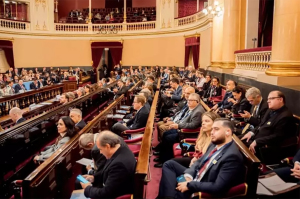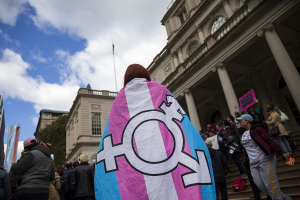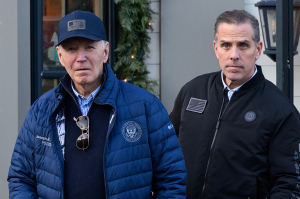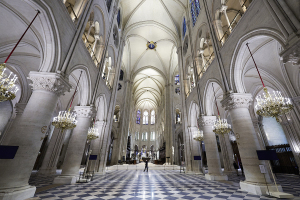Human rights activists accuse UN of 'legitimizing' Taliban at Doha talks: 'Everlasting harm'
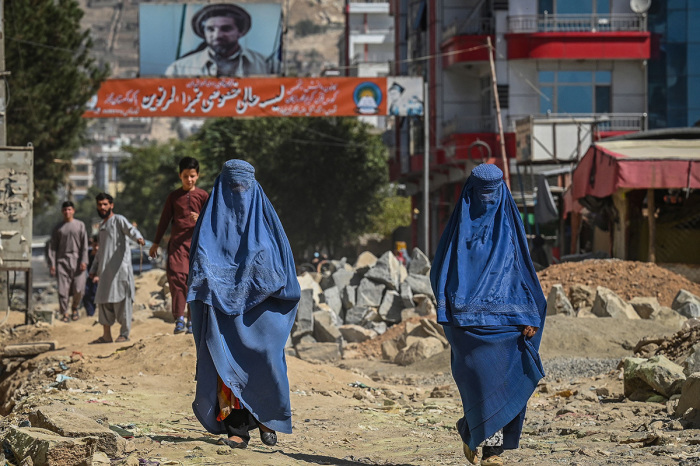
Human rights organizations and feminists have condemned the United Nations for agreeing to conduct talks with the Taliban without the presence of Afghan women, despite concerns about the militant group’s suppression of women’s rights in Afghanistan.
The Taliban seized power in Afghanistan after the Biden administration's botched withdrawal in 2021, and the terrorists used the opportunity to impose Islamic Sharia law. Since the Taliban regained control, it has banned women from seeking a university education, working for NGOs and vowed to arrest women for failing to wear a hijab based on its strict requirements.
According to Reuters, the Taliban is attending for the first time a meeting led by the United Nations in Doha. This marks the third such meeting for the U.N., and it's expected to include envoys from over 20 countries. While the Taliban isn't officially recognized as running Afghanistan’s government, the militant group agreed to send officials to Qatar’s capital next week.
Adhering to the Taliban’s preconditions, the meeting will not provide Afghan women with a seat at the table, nor will it include discussions about Afghan women’s rights. Tirana Hassan, executive director at Human Rights Watch (HRW), criticized the ease with which the U.N. acquiesced to the Taliban.
"Excluding women risks legitimizing the Taliban's abuses and triggering irreparable harm to the U.N.'s credibility as an advocate for women's rights and women's meaningful participation," Hassan stated.
Sahar Fetrat, a researcher for HRW’s Women’s Rights Division, highlighted the abuses Afghan women face at the hands of the Taliban in a piece published Monday and what many perceive as a lack of a response from the U.N. Fetrat referred to the Doha meeting as a “new low for the U.N.” since the Taliban regained power in 2021.
“If Doha 3 moves ahead as planned, the U.N. will be setting a deeply harmful precedent, betraying Afghan women’s struggle for their rights,” Fetrat wrote. “By abandoning its duty to uphold human rights and women’s participation in a shameful effort to appease the Taliban, the U.N. will be causing everlasting harm to its credibility.”
Former Afghan minister of women’s affairs, Sima Samar, warned that the United Nations is submitting to the Taliban by inviting the group to the table this way, The Guardian reported.
“This situation is an indirect submission to the will of the Taliban. Law, democracy and sustainable peace are not possible without including half of the population of the society who are women. I don’t think we have learned anything from past mistakes.
“As one of the main changes, the people of Afghanistan should protest against discrimination, especially against women. Because this is not only the problem of women, but the problem of every family and every father, brother, child and husband,” Samar stated.
U.N. Special Envoy Roza Otunbayeva took questions from the press last Friday about the upcoming meeting in Doha on June 30 and July 1. Otunbayeva said the meeting will focus on “the most important acute issues of today,” including private businesses, banking and narcotics, which she said will concern women, according to the AP.
Otunbayeva also claimed that the envoy would inform the Taliban, “Look, it doesn’t work like this. We should have women around the table. We should provide them also access to businesses.” She added that she hopes those present at the meeting will “agree on next steps to alleviate the uncertainties that face the Afghan people.”
Earlier this year, the Taliban’s leader, Mullah Hibatullah Akhundzada, declared in a voice message that the group would punish adulterous women by stoning them to death in public. The Taliban leader also claimed the radical Islamic group is acting in accordance with Allah, while Western officials are of the "devil."
Samantha Kamman is a reporter for The Christian Post. She can be reached at: samantha.kamman@christianpost.com. Follow her on Twitter: @Samantha_Kamman
















